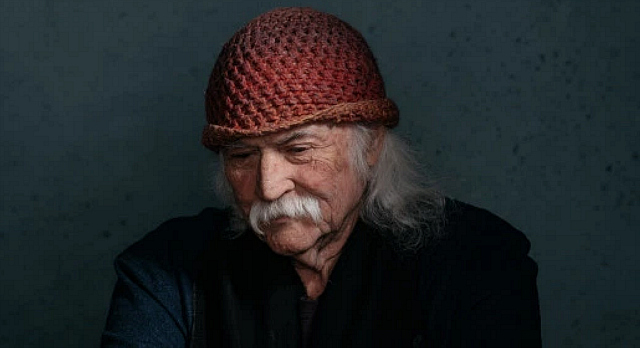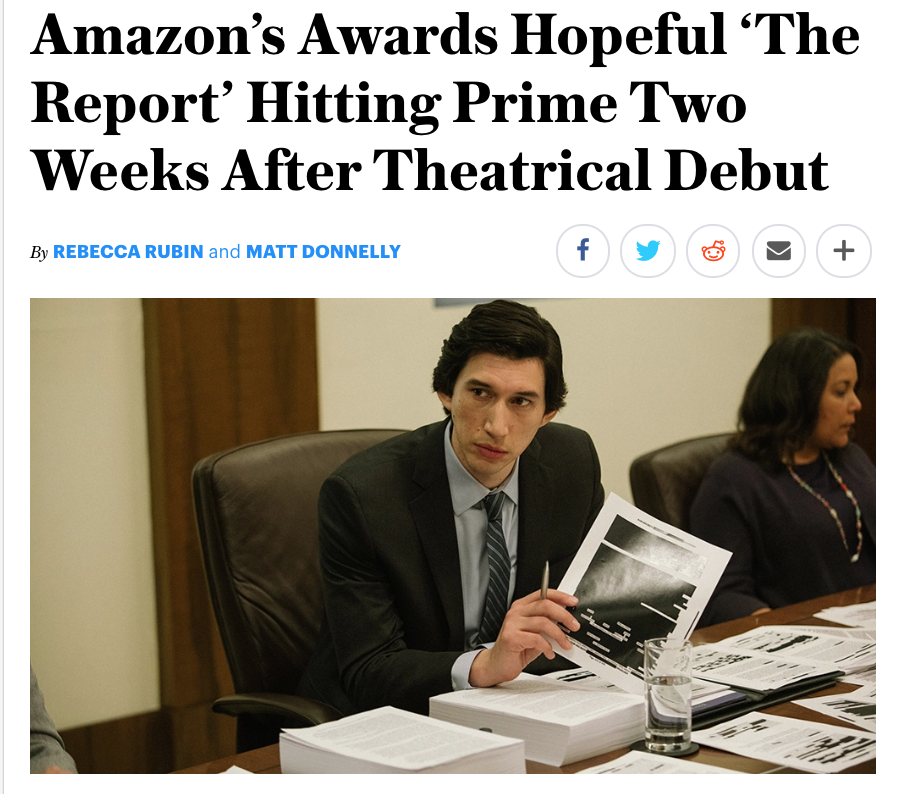There are no upcoming June releases of any apparent consequence so I may as well post HE’s Best of 2019 at Half-Time roster. A grand total of 23 films, and I don’t care if they’re docs or features, streaming or theatrical…none of those distinctions matter any more. I’m once again profusely apologizing for not having seen Christian Petzold‘s Transit but I’ll be correcting this oversight very soon.
How many of the 23 are really, really good? The first 20 with the exception of Once Upon A Time in Hollywood, which I feel is mostly a flavorful in-and-outer that pays off only at the very end. So basically 19 out of 23 are the cat’s meow. Seriously.
Jordan Ruimy‘s list: Luce, Dogman (HE: not so much), Dragged Across Concrete, Ayka (what?), The Art of Self-Defense, David Crosby: Remember My Name, Gloria Bell, Midnight Family, Cold Case Hammerskjold (excellent!), American Dharma, The Farewell (didn’t see it), Avengers: Endgame, Once Upon A Time in Hollywood, Portrait of A Lady on Fire.
I asked a young Manhattan-based friend for his 2019 faves, and he had the nerve to send a list that included David Robert Mitchell‘s Under The Silver Lake…c’mon! I hate it when films that certain people have found “interesting” or “offbeat intriguing” are listed as among the year’s best. No way in hell is Harmony Korine‘s The Beach Bum (55% on Rotten Tomatoes) one of the year’s finest; ditto the Dardennes brothers’ Young Ahmed…please.
1. Kent Jones‘ Diane / “All Hail Diane — 2019’s Best Film So Far“, filed on 3.27.19.
2. Craig Zahler‘s Dragged Across Concrete / “All Hail Dragged Across Concrete,” filed on 3.21.19.
3. FX’s Fosse/Verdon / “Fosse/Verdon — Theatrical, Exquisite, Pizazzy, Deep Blue,” filed on 4.25.19.
4. A.J. Eaton and Cameron Crowe‘s David Crosby: Remember My Name / “Crosby Doc Hurts Real Good,” filed on 1.27.19.
5. Russo Brothers‘ Avengers: Endgame / “Okay With Nominating Endgame For Best Picture Oscar,” filed on 5.4.19.
6. Robert Eggers‘ The Lighthouse / “This Way Lies Madness,” filed on 5.19.19.
7. Diao Yinan‘s The Wild Goose Lake / “Goose-d by Diao Yinan Levitation,” filed on 5.18.19.
8. Martin Scorsese‘s Rolling Thunder Revue: A Bob Dylan Story / “Rolling Along With Scorsese/Dylan” filed on 6.10.19.
9. Julis Onah‘s Luce / “Luce: Assumptions, Triggers, Blind Spots“, filed on 1.29.19.
10. J.C. Chandor‘s Triple Frontier / “Five Sons of Fred C. Dobbs,” filed on 3.6.19.
11. Quentin Tarantino‘s Once Upon A Time in Hollywood / “Once Upon A Time in Hollywood Is…‘, filed on 5.21.19.
12. Olivia Wilde‘s Booksmart / “This Time SXSW Hype Was Genuine“, filed on 4.25.19.
13. Celine Sciamma‘s Portrait of a Lady on Fire / “By my sights as close to perfect as a gently erotic, deeply passionate period drama could be,” excepted from “Midnight Panini,” filed on 5.21.19.
14. Dan Reed‘s Leaving Neverland / “After Tomorrow, Jackson’s Name Will Be Mud“, filed on 3.2.19.
15. Steven Soderbergh‘s High Flying Bird / “Basically A Black Moneyball About Basketball,” filed on 1.27.19.
16. Sydney Pollack and Alan Elliott‘s Amazing Grace / “Finally Saw Amazing Grace,” filed on 12.14.18.
17. Todd Douglas Miller‘s Apollo 11 / Just because I forgot to review this Neon/CNN Films doc doesn’t mean it doesn’t deliver a profound IMAX charge. I loved that it offers no narration or talking heads.
18. Laure de Clermont-Tonnerre‘s The Mustang.
19. Mads Brugger‘s Cold Case Hammarskjöld / “Riveting, Occasionally Oddball Cold Case”, posted on 1.29.19.
20. Sebastien Lelio‘s Gloria Bell / “Moore May Snag Best Actress Nom for Gloria Bell,” filed on 9.13.18.
21. Cristina Gallego and Ciro Guerra‘s Birds of Passage / “Spreading Native Scourge,” filed on 11.26.18.
22. Kirill Serebrennikov‘s Leto / “When Russian Rock Was Born,” filed on 5.10.18.
23. Abel Ferrara‘s Pasolini / “The Night Pasolini Died,” filed on 4.13.19.
From Boston Herald‘s Jim Verniere: Arctic, Gloria Bell, Diane, Dogman, The Fall of the American Empire, Booksmart, Greta, Halston, Aquarela, Hail Satan.





